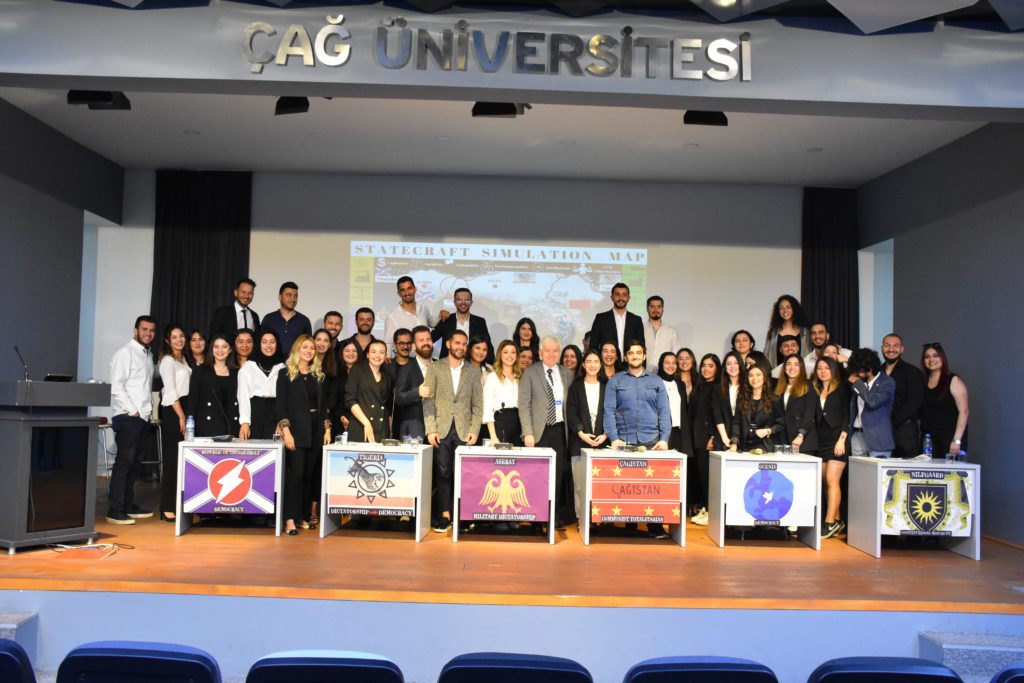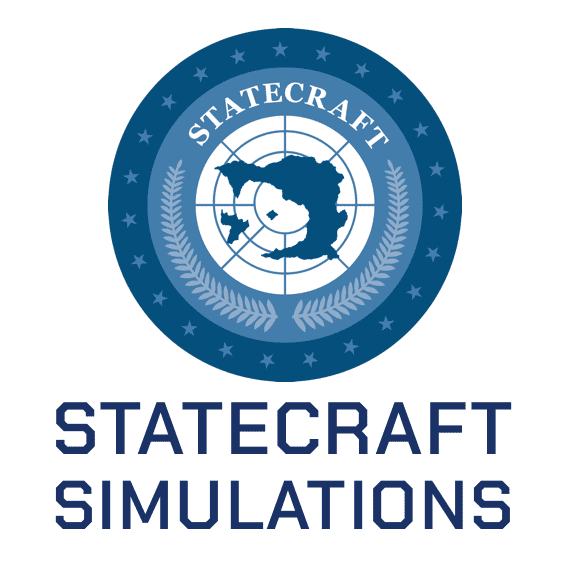Used At
Nebraska
Nevada
New Hampshire
New Jersey
New Mexico
New York
North Carolina
North Dakota
Ohio
Oklahoma
Oregon
Pennsylvania
Rhode Island
United States
ALABAMA
- Auburn University
- Troy University
- University of Alabama
- University of Alabama Birmingham
- University of South Alabama
ALASKA
- Mat-Su College University of Alaska Fairbanks
ARIZONA
- Arizona State University
ARKANSAS
- University of Arkansas (Little Rock)
CALIFORNIA
- California Baptist University
- California State University (Long Beach)
- California State University (Los Angeles)
- California State University (Northridge)
- Losa Angeles City College
- Los Medanos Community College
- Loyola Marymount University
- Norco College
- San Jose State University
- Scripps College
- University of California (Davis)
- University of California (San Diego)
- University of Redlands
- University of Southern California
- William Jessup University
COLORADO
- Colorado Christian University
- Colorado Mesa Universityy
- Colorado State University
- Fort Lewis College
- University of Colorado (Boulder)
CONNECTICUT
- Albertus Magnus College
- University of Connecticut
- University of New Haven
DELAWARE
- University of Delaware
FLORIDA
- Flagler College
- Florida International University
- Florida State University
- Keiser University Flagship Campus
- University of Western Florida
GEORGIA
- Augusta University
- Clark Atlanta University
- Kennesaw State University
- La Grange College
- Reinhardt University
- University of Georgia
- University of West Georgia
HAWAII
- Hawaii Pacific University
ILLINOIS
- Dominican University
- North Park University
- Roosevelt University
Indiana
- Indiana University Kokomo
- Purdue University
- University of Evansville
- University of Indianapolis
- Valparaiso University
IOWA
- Drake University
- Luther College
KANSAS
- Kansas State
- Wichita State University
- Winfield College
KENTUCKY
- Kentucky Wesleyan University
- University of Kentucky
LOUISIANA
- Centenary College of Louisiana
- Tulane University
MAINE
- University of Maine
Maryland
- George Washington University
- Loyola Blakefield University
- McDaniel College
- Mount St. Mary’s University
- Trinity Washington University
- University of California (District Center)
- University of Maryland
- Washington College
Massachusetts
- Boston University
- Emmanuel College
- Framingham University
- Gordon College
- Simmons College
- Suffolk University
- University of Massachusetts
- University of Massachusetts Dartmouth
- Williams College
Michigan
- Adrian College
- Albion College
- Central Michigan University
- Lake Superior State University
- University of Michigan-Dearborn
Minnesota
- Concordia College
- University of Minnesota
- University of Minnesota Duluth
Mississippi
- Mississippi State University
- University of Mississippi
Missouri
- Columbia College
- Lindenwood University
- Missouri State University
- Missouri University of Science and Technology
- University of Missouri
- Webster University
Montana
- Montana State University
- University of Montana
- The University of Montana Western
- Winona State University
Nebraska
- Nebraska Wesleyan University
- University of Nebraska at Omaha
Nevada
- University of Nevada (Reno)
New Jersey
- Drew University
- Montclair State University
- Richard Stockton College
- Rider University
- Rutgers University
- Rowan University
New York
- Hofstra University
- Long Island University Post
- SUNY College at Brockport
- SUNY Geneseo
- Syracuse University
- University at Buffalo, SUNY
North Carolina
- Davidson College
- Duke University
- Elon University
- Guilford College
- North Carolina State University
- Queens University of Charlotte
- University of North Carolina (Chapel Hill)
- University of North Carolina (Greensboro)
- Wake Forest University
- Western Carolina University
- William Peace University
- Wingate University
Ohio
- Case Western University
- Heidelberg University
- Muskingum University
- Wittenberg University
- University of Mount Union
Oklahoma
- Cameron University
- Northeastern State University
- Oklahoma Christain University
- University of Central Oklahoma
- University of Oklahoma
Pennsylvania
- Desales University
- East Stroudsburg University
- Rosemont College
- Slippery Rock University
- Villanova University
- Washington and Jefferson College
- Westminster College
Rhode Island
- Bryant University
- Providence College
- Rhode Island College
South Carolina
- Midlands Technical College
- University of South Carolina
South Dakota
- Black Hills State University
Tennessee
- Austin Peay State University
- Freed-Hardeman University
- Lincoln Memorial University
- Lipscomb University
- Middle Tennessee State University
- Tennessee State University
- University of Tennessee
Texas
- Amarillo College
- Howard Payne University
- Lone Star College
- Midwestern State University
- Prairie View A&M university
- Sam Houston State University
- Tarleton State University
- Texas Christian University
- Texas A&M
- Texas A&M (Corpus Christi)
- Texas A&M International University
- Texas Wesleyan University
- University of Dallas
- University of Houston Downtown
- University of Houston
- University of Texas San Antonio
Utah
- Weber State University
- Salt Lake Community College
Vermont
- Bennington College
- University of Vermont
Virginia
- Ferrum College
- James Madison University
- Liberty University
- Patrick Henry College
- Regent University
- Roanoke College
- Shenandoah University
- Southern Virginia University
- Virginia Tech
- University of Lynchburg
Washington
- Columbia Basin
- Central Washington University
- Seattle University
- Western Washington University
West Virgina
- West Virginia University
Wisconsin
- Carroll University
- Edgewood College
- University of Wisconsin-LaCrosse
- University of Wisconsin-Whitewater
Wyoming
- Casper College
Other Countries
Canada
- Bishop’s University
- Dalhousie University
- University of Saskatchewan
Chile
- Universidad De Santiago
China
- Chinese University of Hong Kong
- Wenzhou-Kean University
Ecuador
- Broward College
France
- International School of Business and Management (CEFAM)
Guam
- University of Guam
Indonesia
- Universitas Pertamina
Japan
- Hokkaido University
- Nagoya University
Japan
- Nazarbayev University
Malaysia
- Taylor's University
Mexico
- Universidad Anáhuac Querétaro
- Universidad del Mar, Campus Huatulco
The Netherlands
- Leiden University
- University College of Utrecht
- University of Twente
Russia
- Higher School of Economics – New Economic School
Singapore
- Nanyang Technological University
TAIWAN
- Taiwan American School
Thailand
- Chulalongkorn University
Turkey
- The Çağ University
- Adnan Menderes University

United Arab Emirates
- GEMS World Academy
United Kingdom
- De Montfort University
- King’s College London
- University of Bath
- University of Cambridge
- University College of London
- University of Northampton
"A REMARKABLY RICH SIMULATION"
Statecraft accomplishes the difficult feat of simultaneously engaging student interest and exemplifying important principles of international relations theory. It provides a remarkably rich simulation of world politics that practically runs itself with no need for time-consuming instructor intervention, while still allowing teachers of more specialized courses ample opportunity for customization. I recommend Statecraft without reservation to all instructors of undergraduate international relations.
"AN EXCELLENT ADDITION TO MY CLASS"
Statecraft was an excellent addition to my international relations course. The simulation ended up appealing to every student in the course, including students from seemingly unrelated majors and backgrounds. It seemed to teach itself and the intuitive interface meant that the class was able to get involved very quickly and easily. I plan on using Statecraft each time I teach International Relations.
"A GREAT TEACHING TOOL"
I use Statecraft whenever I teach the Introduction to International Relations course. Statecraft has been a great teaching tool to reiterate important concepts from the text that makes the learning experience enjoyable for students. It enables greater interaction in the classroom and generates interesting debates on competing domestic and foreign policy goals. Students come away with a better understanding of the complexities and challenges of policy making. It is a very useful active learning tool that students can benefit from tremendously.
"IT ILLUSTRATED SO MANY OF THE CONCEPTS"
I first used the IR Statecraft during a summer International Relations course. It was a great way to utilize some of the time out of an almost 3 hour long, 5 day a week course. The students were able to figure out the game easily. It illustrated for them so many of the concepts that we were reading about and discussing in class. And (most importantly) it was easy for me to set up, run, and keep track of. I’ve used Statecraft in every Intro to IR course, and Intro to International Security course I’ve taught since.When I started teaching American Government classes, I immediately sought out some sort of simulation game for my students to play. I tried one or two other games before Statecraft came out with it’s American Government Sim. The other games were unwieldy and required a LOT of work on my part to set up and run the simulation. And students just didn’t get engaged. When I found out that Statecraft was working on an American Government Sim, I was so excited, I signed my next course up to beta test it! The American Government Sim has all the important hallmarks of the IR Sim. It’s easy for me to set up, run and keep track of. Students can get VERY invested in the game. And it helps illustrate things like separation of powers, checks and balances, and other important concepts that we discuss in class. Most importantly for me, the American Government Sim doesn’t go easy on the students. They come out of it realizing just how difficult it must be for our leaders in government, the media, and interest groups to do their jobs, and how competing interests can make what seems like a simple decision, much more complicated.
I 100% recommend the Statecraft sims to IR and American Government teachers and professors!

"HELPS STUDENTS ABSORB MATERIAL"
I use the Statecraft Foreign Policy Sim to cover the cornerstone IR theories and paradigms. From my experience the simulation helps the students further absorb the theoretical material which otherwise might be overly abstract.
"INSTRUCTORS ENJOY STATECRAFT AS MUCH AS THEIR STUDENTS"
Statecraft is an engaging International Relations simulation that allows students to acquire personal experiences, which I have found helps them better relate to and understand complex concepts, such as nuclear deterrence, balancing power, and fostering cooperation though organizations. The number one complaint I hear from other professors about simulations, is the amount of work required on their part. Not Statecraft! This is a self-contained simulation that instructors enjoy as much as their students.
"AN IMPORTANT PART OF MY CLASSROOM TOOLKIT"
I have used Statecraft for over 3 years now and have been amazed at the way it elevates engagement in the classroom. The competitive element raises new and challenging concepts for my students. Media reports, readings or lecture may occasionally bring life to international politics. This tool allows me to ride the wave of their enthusiasm when they have a ready reference point for IR concepts and dynamics. I will continue to use Statecraft as an important part of my classroom toolkit.
"EXTREMELY HELPFUL TEACHING TOOL"
I used Statecraft in my introductory International Relations course, and it was a big hit among my 150 students. Statecraft is an extremely helpful teaching tool that helps to engage students who have different ways of learning, and brings a fun element into the classroom. Not only did they get to experience IR from an entirely new perspective, they also got to know each other really well and develop a sense of camaraderie. Their Statecraft country groups turned into study groups and helped them to get more involved in the course in general. I highly recommend Statecraft!
"ALLOWED THEM TO APPLY THE CONCEPTS"
I used Statecraft in my large (150 person) Introduction to International Relations, and the simulation was a great hit with my students. It allowed them to apply the concepts that we were learning in class to their on-line Statecraft world and to grapple with the difficult decisions foreign policy leaders face on a daily basis. Students came away from the experience not only with an enriched understanding of international conflict and cooperation, but also with a better grasp of the nexus between domestic and international politics. More than anything, participating in Statecraft made students think critically about their own prior beliefs about international politics. It was also fun! The students got to meet one-another (a daunting task in a room of 149 other first year students), and I frequently spotted students playing Statecraft all around campus. I’m looking forward to using Statecraft again!
"STUDENTS ARE BUILDING VALUABLE SKILL SETS"
I have been using Statecraft in my Introduction to International Relations course for five years, and each semester is different! The benefits, however, are consistent. For the instructor, using Statecraft establishes the classroom as an interactive experience from the beginning, which spills over into class periods where we are discussing course content. The students are building valuable skill sets that they transfer to other academic and professional settings, particularly related to working within groups and negotiation tactics. And no matter what paths students take in navigating their way through the game, they will utilize and apply concepts in international relations. It’s not just that students are learning the course content, they are experiencing how challenging it can be where there are multiple things coming at you at all times that must be dealt with. This provides context for a better understanding of the decision-making process in current events.
"AN EXCELLENT LEARNING RESOURCE"
I have used the Statecraft International Relations simulation in five of my IR classes in the past year and a half, and my experience has been overwhelmingly positive. Statecraft encourages students to work together and cooperate, just as the professional and political world requires them to do. Moreover, Statecraft is another valuable tool that can help bring the concepts and ideas discussed in our lectures to life. It is a well-known fact that students learn best by applying their knowledge, and Statecraft, with all the dynamism and appeal of a video game, allows learners to do just that. However, Statecraft is more than just a game, and indeed students often take their participation in the simulation very seriously. Just like real-world politics, passion and competition often result in some surprising and unpredictable situations – alliances, betrayals, rescues and invasions, even full-blown wars! Students have always reported that they enjoy the simulation, and that it really makes them think about international relations in a practical way. Statecraft is an excellent learning resource for the 21st century classroom, and I wholeheartedly recommend it.
"GOOD BALANCE OF PLAYABILITY + MULTI-DIMENSIONALITY"
Statecraft is a good simulation for undergraduate courses in International Relations where you want to explore the connections between domestic and international affairs. It offers a good balance of playability + multi-dimensionality. It’s not just about diplomacy; it’s about balancing internal and external factors that feed into your capabilities.
"STUDENTS MAKE CONNECTIONS TO THEIR OWN LIVES"
I've been using Statecraft's U.S. Government Simulation for two years now. I use it in every survey U.S. Government & Politics course that my college offers, both lecture and hybrid, because students are given the opportunity to connect what appear to be abstract concepts of power, decision-making, influence, and incentives to real-world scenarios in an interactive and fun political simulation. Additionally, this simulation helps students make connections to their own lives, in class discussions, and ask questions about the motivations of the great political actors and issues of our time. I recommend the American Government simulation to any professor looking to enhance their instruction and engage students on a higher level.
"A POWERFUL ACTIVE LEARNING TOOL"
Statecraft allows my students to experience, personally and vividly, concepts such as the security dilemma and the collective action problem. It is a powerful active learning tool that captures students’ imagination, draws them into a rich fictional world, and often keeps them strategizing and negotiating with classmates all week outside of class. Beyond mastery of course content, the degree of individual student engagement, “soft skill” development (e.g., teamwork, leadership, and communication) and relationship building is unmatched by other pedagogical activities, especially for large classes. I’ve often had alumni return to campus and report how much they learned and still reflect on lessons from the Statecraft simulation, years after graduating.
"MANY WAYS TO ADAPT THE GAME TO YOUR CLASS"
I have assigned Statecraft since 2013. Statecraft has appealed to our political science majors, but also to gamers and other majors who enjoy competition, interaction with other students, taking responsibility, planning ahead, and being held accountable. It has been especially useful here at the University of Houston Downtown (UHD). There are many ways to adapt the game to your classroom style, or students that you have at your school, and Statecraft Help is very professional.
"BRING IN BLENDED LEARNING TECHNIQUES"
Statecraft is a great way to bring in blended learning techniques into the classroom. From the instructor side, it is easy to use and low maintenance. What I like about Statecraft the most, is that students get the opportunity to see how the theories discussed in class play out in a hands on environment.
"IT CAN HELP ACHIEVE LEARNING GOALS"
It’s a simulation tool that makes running an international politics simulation in your classroom doable. You can use it to illustrate course concepts and at least some students are really engaged with it. I rate it overall positive; it can help achieve learning goals.
"STUDENTS BETTER UNDERSTAND ABSTRACT CONCEPTS"
Statecraft does a great job in showing students how IR theories really work. It allowed my students to better understand abstract concepts and theories and apply them in the simulation. I would strongly recommend Statecraft to anyone teaching International Relations.
"ONE OF THE BEST SIMULATIONS I'VE FOUND"
Statecraft allows students to experience first-hand the complex mix of international and domestic pressures that states face in the international system. I've seen my students benefit greatly from playing the game, as they emerge with a much more sophisticated understanding of course concepts. It's one of the best simulations I've found.
"STATECRAFT IS A MUST IN A FOREIGN POLICY CLASS"
I teach Foreign Policy, and Statecraft is a great way for students to actually put themselves in the position of foreign policy decision-makers. Rather than merely learning theories of decision sciences in lecture, Statecraft allows the students to experience decision-making hands-on. My lecture incorporates elements of foreign policy decision from studies in International Relations, other sub-fields of Political Science, and Psychology, and Statecraft gives students a unique opportunity that just reading and writing about materials from all these fields cannot — a real chance to grasp the dilemmas and difficulties in making decisions, as well as diplomacy and political interaction and communication between and within countries. In this sense, I think Statecraft is a must in a Foreign Policy class. Students really get into the game very quickly, so it also makes class much more interesting!
"AN ENGAGING EDUCATIONAL TOOL"
Statecraft is an engaging educational tool that I used in my Introduction to International Relations course. Through Statecraft, students were able to apply otherwise abstract theoretical concepts in a fun way and it helped them understand theories’ relevance in the ‘real world’. Not only has Statecraft broadened students' understanding of international relations, it has also given me multiple opportunities to relate theories to students' actions in the simulation. This made lectures more engaging and concepts easier to explain. I chose to read and grade all memos and give students extensive feedback, which is optional, but other than that Statecraft basically ran itself and left me with lots of time to prepare lectures. I added several in-class ‘Statecraft Summits’ to give the different countries a platform to negotiate in person, feel tensions and come to agreements with multiple countries. Students wrote Reflection papers after the simulation ended and I was pleased to see that students indeed very much enjoyed the simulation and that it also challenged them intellectually and improved their interpersonal skills. I most certainly will use Statecraft again in the future.
Case Studies

Creates Network Connection, Contextualizes Lessons, & Connects Decisions to Outcomes
Statecraft is incredibly valuable long-term in establishing the utility of the class, establishing the classroom environment and making sure that the important lessons of IR almost become real for the student.

The Ultimate Active Learning Tool for Engagement & Academic Honesty
Each simulation really is unique. The students just don’t follow one pattern every semester. Plus, a lot of them take the initiative and they call meetings and they stand up in front of class. They do stuff without me forcing them to do it. It’s probably the best part. That’s the best surprise when students take the initiative on their own.

Creates Network Connection, Contextualizes Lessons, & Connects Decisions to Outcomes
Statecraft is incredibly valuable long-term in establishing the utility of the class, establishing the classroom environment and making sure that the important lessons of IR almost become real for the student.

A Robust, Effective Online Simulation that Increases Engagement
The best thing about Statecraft is the student engagement. My students stay after class to play. I always have 100% participation, and I always have 100% attendance. Adapting Statecraft has been effective.

Builds Community, Creates Learning Connections & Aids in Assessments
The top three benefits of Statecraft are: (1) Building student community, (2) Giving students a common and personal experience that also allowed them to apply theories of international relations, and (3) Laughter.

Worth It: Sim Creates Emotional Connections to Course Material
I could see students enjoyed the simulation and they did engage with their peers. Many of them have told me, “Now we understand how hard it is to achieve cooperation in foreign policy and international relations.”

Improves Engagement, Forces Critical Thinking & Creates Connection
The students’ stress, their struggles and their questions are big indicators that they feel the impact of the simulation and are learning lessons in a way they wouldn’t get from a lecture.
Schedule a Demo with our Team!
We have been designing, testing, and supporting simulations for over 10 years. With 15 third party research publications and case studies your class is in good hands with Statecraft.

